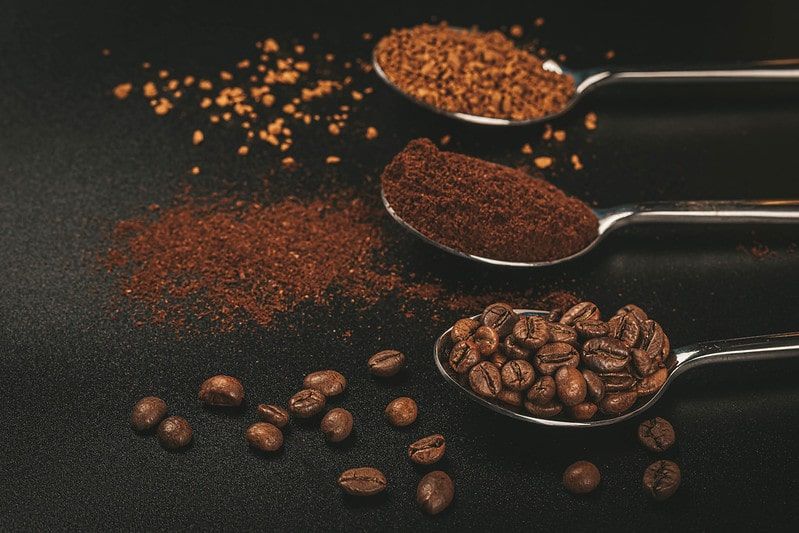What does soluble coffee mean?
When choosing a soluble coffee, also known as instant coffee, consumers are increasingly choosing it because it is easier and quicker to prepare at any time of the day.

Soluble coffee, also known as instant coffee, has gained preference among consumers since it is easier and quicker to prepare at any time of the day.
How is instant coffee made?
The coffee berries are harvested. They are washed in the processing plant. They go through a pulper where the skin is removed. A rotating drum presses the berries against the rotating wall causing the beans to come out. They go through a polisher to remove the skins. The berries are stored in silos. The green coffee beans are heated for 8 to 15 minutes at a temperature of 180°C to 240°C, depending on the desired degree of roasting. The more the coffee is roasted, the darker it gets. After roasting, the coffee is ground and a coffee concentrate is prepared by dilution in hot water to extract possible solid residues, obtain the coffee extract by centrifuging and then drying. By aspiration, which consists of drying it in hot air in a special chamber to form crystals of the extract obtained. By lyophilization, which is when the water is extracted from the extract and then low temperatures are applied to sublimate it all with water at low pressures and form the coffee crystals.
Changes in coffee
During roasting coffee loses humidity and the starch is converted into sugar, the proteins are decomposed and the entire cellular structure of the bean is altered. The heating process causes the release of the coffee oil or "caffeoyl", which is the essence of the bean. This essence is what we enjoy in the cup.
The regulation of Mexican coffee
Mexico is the ninth largest coffee producer in the world and this activity is so important that the Law on the Production and Sale of Roasted Coffee has existed since 1972, the last reform was in 2004. It regulates the elaboration and sale of roasted coffee in Bean or ground, Instant, granulated, pulverized, and other soluble forms, Concentrates, and Infusions.
It also establishes that in the case of coffee mixed with other products, the norms on commercial and quality information will be rigorously observed, which will require the punctual declaration of the substances or foreign matter that it contains and to show its percentage for the roasted coffee content, with a letter twice as large as the word coffee, as well as the mention of the additives incorporated to preserve the product and the natural substances that have been partially or extracted from it.
For soluble coffee without decaffeination or decaffeinated coffee, the national standard that establishes the specifications is NMX-F-139-SCFI-2010; however, for soluble coffees with sugar, there is no specific standard that defines the characteristics of their quality, an important point that should be evaluated because the coffee content of these coffees is reduced.
The adulteration of soluble coffee and coffee beans has been a concern for a long time. There are established parameters regarding the types of sugars that a pure coffee can contain. However, adulterations with corn and chickpea are not contemplated for these contents. For this reason, research studies have been carried out to determine the feasibility of determining the starch content to be able to observe this possible addition.
Recommendations
Moderate if you have any of these conditions
It should be consumed in moderation by those taking tranquilizers, antidepressants, and those suffering from gastritis, ulcers, or other diseases of the digestive tract.
Carefully read the labels
In the market, there are pure soluble coffees without decaffeination and soluble coffees mixed with sugar or caramel, of which there are also those without decaffeination. Choose the one that suits your tastes and needs.
Avoid its consumption if you are pregnant
Coffee consumption (due to caffeine) is not recommended during pregnancy.
Although the caffeine content per 1 cup (200 ml) of instant soluble coffee, using a teaspoon of 2 g, can have 87 mg and in the case of decaffeinated coffee 4 mg, the amount of caffeine in a cup depends on how much caffeine we drink.
All coffees with sugar claim to contain 30% sugar, generally caramelized. Their caffeine content is lower compared to pure coffees.




